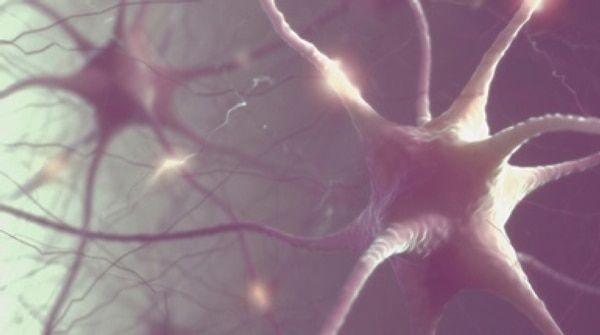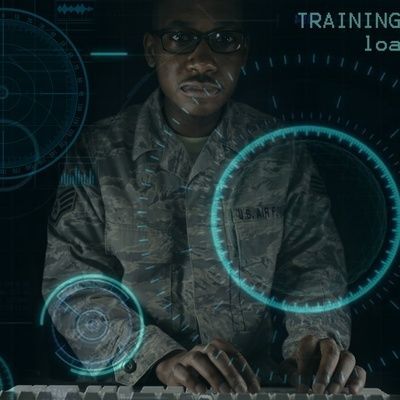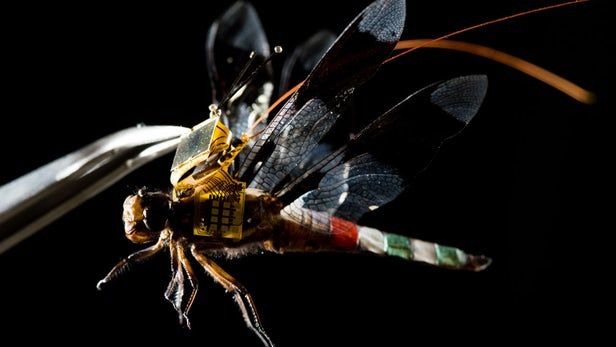Page 10325
Jun 2, 2017
Resurrected: A Controversial Trial to Bring the Dead Back to Life
Posted by Shane Hinshaw in category: neuroscience
Scientists remain skeptical about an experimental approach to reverse brain death.
- By Kate Sheridan, STAT on June 1, 2017
Jun 2, 2017
Tomorrow’s Robots Will Train in Simulators, Just Like Today’s Troops
Posted by Dan Kummer in categories: Elon Musk, physics, robotics/AI, transportation
Several firms are working on training environments like Star Trek’s Holodeck, but for machines.
When future robots enter the world, they won’t have a learning curve.
Artificial intelligence researchers are creating tools to help teach the robots that will assemble our gadgets in factories, or do chores around our home, before they ever step (or roll) into the real world. These simulators, most recently announced by Nvidia as a project called Isaac’s Lab but also pioneered by Alphabet’s DeepMind and Elon Musk’s OpenAI, are 3D spaces that have physics just like reality, with virtual objects that act the same way as their physical counterparts.
Continue reading “Tomorrow’s Robots Will Train in Simulators, Just Like Today’s Troops” »
Police in Dubai have unveiled a working police robot — what the kids call a “Robocop.” Using a computer tablet that is based in the robot’s chest, Dubai residents can report crimes, pay speeding tickets, and submit paperwork in six different languages. The Emirati robot has a built-in camera which allows it to read facial expressions and identify suspects, and it live streams audio and video back to its human coworkers at an operation center.
Dubai has already implemented other modern safety services, including firefighters that use jetpacks. City police aim to have robots make up a quarter of their workforce by the year 2030.
Jun 2, 2017
Waymo working on self-driving trucks
Posted by Dan Kummer in categories: robotics/AI, transportation
N” Alphabet Inc’s (GOOGL.O) self-driving car unit Waymo is working on developing self-driving trucks, the company said on Thursday.
Waymo, which is looking to expand its self-driving car efforts, expects autonomous vehicles to be able to take over longer distance trucking in the coming years, while allowing human drivers to handle local pickup and delivery routes.
“We’re taking our eight years of experience in building self-driving hardware and software and conducting a technical exploration into how our technology can integrate into a truck,” a Waymo spokesperson said in a statement.
Jun 2, 2017
Scientists detect Einstein gravitational waves for a third time
Posted by Dan Kummer in categories: cosmology, physics
N” Scientists have for a third time detected ripples in space from black holes that crashed together billions of light years from Earth, a discovery that confirms a new technique for observing cataclysmic events in the universe, research published on Thursday shows.
Such vibrations, known as gravitational waves, were predicted by Albert Einstein more than 100 years ago and were detected for the first time in September 2015. They are triggered by massive celestial objects that crash and merge, setting off ripples through space and across time.
The latest detection occurred on Jan. 4, 2017. Twin lasers in Louisiana and Washington picked up the faint vibrations of two black holes that were 20 and 30 times more massive than the sun, respectively, before they spiraled toward each other and merged into a larger black hole.
Continue reading “Scientists detect Einstein gravitational waves for a third time” »
Jun 2, 2017
Video shows maiden flight of cyborg dragonfly
Posted by Dan Kummer in categories: biotech/medical, cyborgs, robotics/AI
Over the past few years, a variety of cyborg animals have been unleashed, as scientists kit out cockroaches, locusts and even turtles with electronic accoutrements. Back in January, researchers from Charles Stark Draper Laboratory and Howard Hughes Medical Institute (HHMI) outlined plans to fit dragonflies with tiny electronic backpacks, allowing them to be controlled remotely. In a new video, their cyborg dragonflies have taken flight for the first time.
The animal kingdom is fertile inspirational ground for new technology, but it’s difficult to properly mimic the speed and manoeuvrability of a dragonfly, or the complicated olfactory system of a locust. Rather than designing robots and sensors from scratch, scientists have developed ways to take advantage of the hard work nature has already done, by equipping live insects with electronic systems.
Hardt is redefining global mobility with on-demand high-speed transportation for everyone. We are Europe’s leading company developing a system like hyperloop to bring you anywhere at anytime.
Jun 1, 2017
Could Aliens Be Hibernating Through The Worst Time in The Universe?
Posted by Andreas Matt in categories: alien life, existential risks, robotics/AI
As the Fermi paradox states, the Universe is a vast, unknowable space, filled with trillions upon trillions of potentially habitable planets, so… where are all the aliens?
In the latest attempt to solve this conundrum, a trio of researchers have suggested that advanced alien civilisations have gone into self-imposed ‘hibernation’ — waiting for a future where the Universe is far colder than it is now, which would facilitate the kind of processing power we could only ever dream about.
A new paper written by Oxford neuroscientist and AI expert, Anders Sandberg and Stuart Armstrong, together with Milan Ćirković from the Astronomical Observatory of Belgrade, Serbia, argues that civilisations far more advanced than us could have conceivably explored a big chunk of the Universe already, and are now waiting for a better time to be alive.
Continue reading “Could Aliens Be Hibernating Through The Worst Time in The Universe?” »
You can watch the entire 24-hour broadcast right here: http://asteroidday.org/live | View the full schedule, here.
Asteroid Day LIVE Speakers from Luxembourg
Time is running fast! There’s officially only one month left until Asteroid Day 2017 and our live broadcast programme is taking clear forms. The schedule is set, the outline drafted, a studio set being built and most of the speakers confirmed. Here’s our rundown of whom you can expect during the 6 hours live from Luxembourg on June 30th from 12 – 6 PM (Berlin time / UTC+2). This line-up in addition to the many guests and speakers over the course of the 24-hour-live-broadcast during the other programme slots by our partners at ESA, JAXA, NASA, the University of Arizona and many others.


















